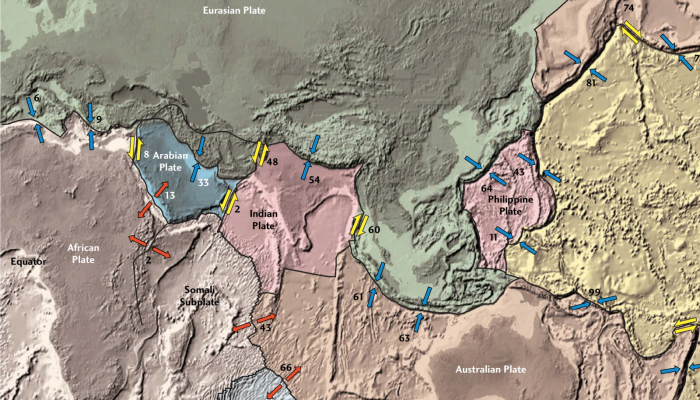
These blogposts present interviews with outstanding scientists that bloomed and shape the theory that revolutionised Earth Sciences — Plate Tectonics. Get to know them, learn from their experience, discover the pieces of advice they share and find out where the newest challenges lie!
Meeting Peter Molnar
Active in different research areas of the Earth Sciences, Prof. Peter Molnar has been Professor of Geological Sciences at the University of Colorado at Boulder for more than a decade.
Set your own standards for excellence and don’t let other people decide them
You have come a long way in academia! How do you remember the beginnings of your career?
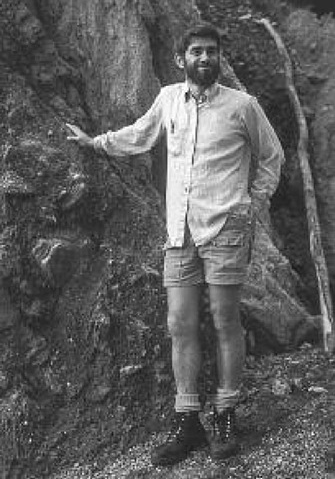
Peter Molnar (1984) – Credit: what-when-how, In Depth Tutorials and Information
I studied physics in the United States, at Oberlin College, where I took one semester in Physical Geology. I remember a friend of mine said “Molnar, you ought to take Geology. If you take Geology, you will look at the landscape completely differently from the way you do.” And I liked looking at the landscape, so I took that semester. Then, I worked one summer at the Harvard Cyclotron Laboratory, and I realized that I wasn’t cut out for that kind of physics… So, I thought of going to geophysics. I applied and I was a good enough student that I got in, in both Columbia and Caltech. I went to Columbia University. During my second year, I attended a talk by Lynn Sykes. He had studied earthquakes on fracture zones and demonstrated that transform faulting occurred. This was a moment that changed me. I remember thinking “Oh my God! Continental drift does occur!” I had been introduced to it back in college, but I didn’t believe any of it! I heard Sykes, and I suddenly realized there is something exciting going on. I got interested and turned my attention to it. While a student I took a “sabbatical,” went to East Africa with a bunch of seismographs to study earthquakes there.
I attended a talk by Lynn Sykes… This was a moment that changed me
I graduated in 1970. Then I was a PostDoc for two years at Scripps Institution of Oceanography. Afterwards, I went to the USSR for four months, because I thought earthquake prediction offered a bright future. Next, I took a job at MIT where I had the good fortune to get to know Paul Tapponnier. He really taught me more geology than I knew by a long shot. I stayed at MIT for 27 years, but I wasn’t a very good teacher. So I decided to quit, and I supported myself on grants from NSF and NASA. Late in the 90s, after supporting myself for more than 10 years, I wanted to change directions. So I looked into moving to a place where they would pay me a little a bit so that I did not have to depend on grants. And there was the choice between University of Washington and the University of Colorado. I had gotten interested in climate change, and then other things since then, and I have been here for 18 years.
After being active for several decades in this field, where does your main research interest currently lie?
Right now my main interest is related to how geodynamics affects climate on geologic scales. There are two problems that attract me: how does the high topography of Asia affect Asian climate and how do islands in the ocean affect rainfall and large-scale atmospheric circulation. The ultimate goal of the latter is Ice Ages, since I think they are all tied together. I have been working on what you might call geodynamics now for most of the last 50 years, so I still do that. I no longer do much seismology.
It’s almost a religion that I don’t believe what I don’t understand
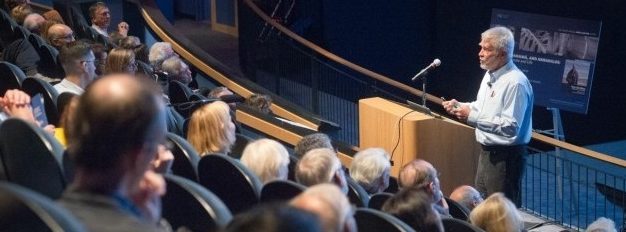
Peter Molnar (2014) – Credit: Oceans at MIT
How would you describe your approach?
My wife says that what I do is to look for problems where everybody believes something, but there is an inconsistency, and that I try to find that inconsistency and expose it, and then revel in the pleasure of that exposure. That’s her observation of watching me, I certainly do not do this consciously.
A concern I have with a younger generation is that, for some reason, they have not been encouraged or they have not learned to ask important questions…
What about your methods?
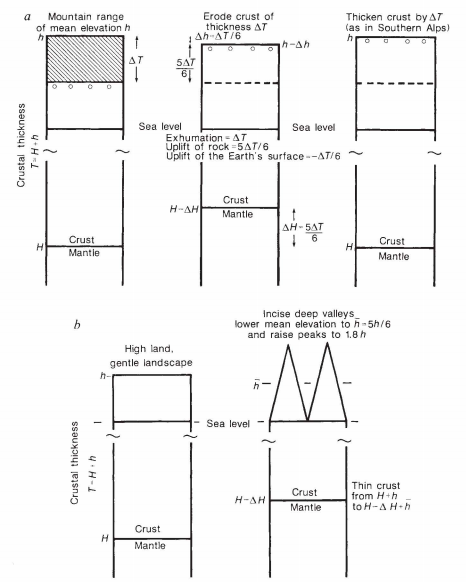
Molnar & England (1990). Late Cenozoic uplift of mountain ranges and global climate change: chicken or egg? Nature, 346, 29–34.
I seek simple physical explanations for things. I do not like big models because I don’t understand them, and it’s almost a religion that I don’t believe what I don’t understand. I use big numerical codes. I use them to carry out “simple numerical experiments” where you vary one parameter and see what you get. To me this is an experiment. It’s just not done in a laboratory but on a computer. The strategy is to understand the physical processes while bringing data to bear. Another central element, which I often seen missing today, is that I try to direct my research towards problems that are “important”. It seems to me that an important problem is one that when you solve it, it changes the way people think. Sometimes you have to make incremental steps forward. As an example, both Tapponnier and I, over the years, have tried to constrain the kinematics of Asian deformation by studying slips on faults, and determining slip rates. One could argue, those studies are incremental steps forward, but of course, the big goal is to put the whole picture together. I no longer do this.
There are many people who do this better than I do. So, it would be pointless for me to do that. But I compile their data continually. And the question that I am asking, in this case, is what are the underlying physical processes that determine how the deformation occurs?
A concern I have with a younger generation is that, for some reason, they have not been encouraged or they have not learned to ask important questions. There’s too much of a tendency to work on incremental problems.
While you are learning, you are alive
What would you say is the favourite aspect of your research?
Bringing two pieces together that don’t look like they fit, until you put them together. For example, I think that rainfall over the islands in Indonesia and the growth of Indonesia has made the Ice Ages in Canada. Now, who would have thought that? I have fun with this! You have to realize that when you do this type of things, most of the time you are wrong. So, I might be wrong about this one, but I am having fun. So it doesn’t matter. I’m learning. That’s the second favourite thing: learning. While you are learning, you are alive. And the third thing is fieldwork. I love being in the field. My head gets clear, I see things that I have not seen before, I learn about other cultures and people. I just have a wonderful time. I don’t think my own fieldwork contributed much to our field – but it’s important to me.
I’m just having fun!
Why is your research relevant? What are the possible real-world applications?
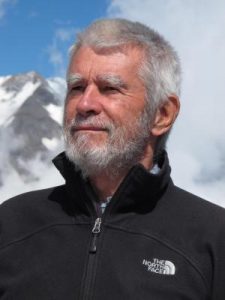
Peter Molnar – Credit: University of Colorado Boulder
I think my research is about as relevant as Goya’s paintings – Goya is one of my favourite artists. So if you think that Goya’s paintings are relevant, then maybe my research is relevant. And if you think his paintings are not relevant, then my research is not relevant either. And I shouldn’t be so pretentious as to equate my work to Goya’s paintings.
What would you say is the main problem that you solved during your most recent project?
I don’t know if I solved any problem… that’s not a question I ask myself. I’m just having fun!
I wanted to ask what do you consider to be your biggest academic achievement, but perhaps I should ask you what is the one achievement that gave you the most fun?
I don’t spend time thinking about my biggest achievement. I prefer to look forward to what’s coming. You know, most people my age are retired, I can still work 50 or 60 hours a week. I love what I do. I rather look forward to the exciting stuff in the future.
…it troubles me when I see people worrying […] about artificial metrics
Looking back, what would you change to improve how science in your field is done today?
I see two aspects of the direction science is going that trouble me. One, can do nothing about, is the level of funding. Most of us struggle to get funded. I feel that back 50 years ago, it was much easier than it is now. Of course, we were fewer people. But in any case, limitations on funding really slow us down.
The other thing that troubles me is the focus on metrics. People counting the number of papers they write, worrying about their citations and not worrying about the quality of their work. These very poor measures of quality. So much today is focussed on these metrics, these indexes, that are meant to be a measure of your work. People are not thinking about the quality, they are thinking about how many people are going to cite it, where they are going to publish it, does the journal have a high -whatever it is called- impact factor. This is just crap, people should not waste time on this. This is just ridiculous! The focus should be on the quality of the work. We all have different ways of deciding quality. It is not something you measure, however; it’s something we determine in some subjective way. And it troubles me when I see people not worrying about the right thing, quality, and worrying instead about these artificial metrics. I am just so glad these things don’t matter to me. I am old enough, but I really don’t envy young people that have to cope with these sorts of artificial targets.
I don’t see anything like Plate Tectonics in the verge from happening.
But I do see still see very exciting stuff, but probably in different parts the science
What do you think are the biggest challenges right now in your field?
Some of the challenges are too hard for me even to pursue them. In the climate world, we don’t know about the role of clouds. And I don’t know how to pursue this, so I don’t pursue it. Do clouds have a cooling effect, and what is the response from clouds to warming? Will they slow or accelerate the warming? We don’t know. The role of clouds is certainly a big, big question. Although I do not work on this, I think about it, but I don’t see what to do.
One of the problems I do work on is what brought us Ice Ages. How did we go through 300 My years without much ice in the northern hemisphere and then suddenly, beginning 3My years ago or so, we had 5 big Ice Ages? Why? An easy answer is that now CO2 is higher. But it’s really hard to measure, determining CO2 in the past is a big question.
Another big question for me is how does the convection in the mantle connect with deformation in the lithosphere? How do these connect to one another?
Another one I work on is where is the strength within the lithosphere? We still argue about it. This is a 40 years old question, and the points of view haven’t changed. There are still those who put the strength in the crust, while others put it in the mantle. I don’t think we know. And of course it’s going to be different in different places, so it’s a more complicated issue.
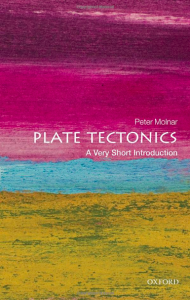
Molnar (2015). Plate Tectonics: A Very Short Introduction – Credit: Amazon
I think the prediction of earthquakes is often dismissed as something that we ought not to spend time on. But the progress that has been made in understanding earthquakes in the past 20 years is huge. This came up in Paris and I agree completely with what Eric (Calais), Jean-Philippe (Avouac), and others said. The use of GPS to study co-seismic and post-seismic deformation, and the realization of slow earthquakes are big advances. That’s a big question that I think we might be close to solving.
Another question I got really excited about is understanding how the upper mantle and the lower mantle are connected. In fact, some of us have had a discussion about it in Paris. The evidence shows the lower mantle is really chemically different from the upper mantle; that’s obvious. But how are the two connected; that’s not obvious. I don’t see this the same way as a bunch of other people do. I see the connection between the two, and this takes us back to the question of the early history of the Earth. How is the chemical difference manifested? How has the slower convection of the lower mantle slowed the cooling of the Earth?
I think the answer to your question is: I don’t see anything like Plate Tectonics on the verge of happening. I do see still very exciting stuff, but probably in different parts the science.
…that way I was not going to get killed
When you were in the early stages of our career, what were your expectations? Did you always see yourself staying in academia?
I don’t remember what expectations I had, I don’t think I was even aware enough to know what I wanted to do. When I decided to go into geophysics, people said to me “Oh, what’s geophysics?”, and I didn’t know. And “What would you do?” and I said, “Well, oil companies need people like that”. At that time I knew so little, that it never dawned on me that if I work for an oil company, I might be stuck having to live in Texas. And I can’t imagine living in Texas. What I did know is that if I did not go to graduate school, I would be sent to Vietnam. I was kind of trapped with having to go to graduate school and choosing a field that seemed possible and open to me. So, I just decided to go for the easy road. I stayed in school because that way I was not going to get killed. I stayed, and I thought about music and girls. But once I got excited about research, it was clear that that was the only place for me.
What is the best advice you ever received?
Now, that’s a good question. One of them came from my father. He did not articulate this, but I sensed it in a conversation with him. And one of my three main advisors, Jack Oliver, emphasized this to me again, and that is to continuously ask yourself: What is the most important scientific question? As soon as you did something, Jack Oliver would say, “Ok. Now you have done this, what’s the next most important question?” Just because you ask it, it doesn’t mean that you have solved an important problem. But if you continue to ask yourself that question, you have a better chance of doing good science, than if you don’t ask that question.
Jack gave another piece of advice, which is almost counter opposite to this, and that was that when you can’t think of what to do, the worst thing you could do is to do nothing. Just because you can’t come up with the most important problem doesn’t mean you should do nothing. You should just keep going.
Another piece of advice is, set your own standards. None of us is Einstein. None of us is Newton (maybe not none of us, but very, very few of us are). So, if we set those standards, we fail. And the problem is that, if we let universities with low standards but counting and using metrics to set the standards, we will not do as well as we would, if each of us would set our own standards for excellence. We should strive on meeting our standards, rather than what others expect from us. Don’t let other people decide your standards.
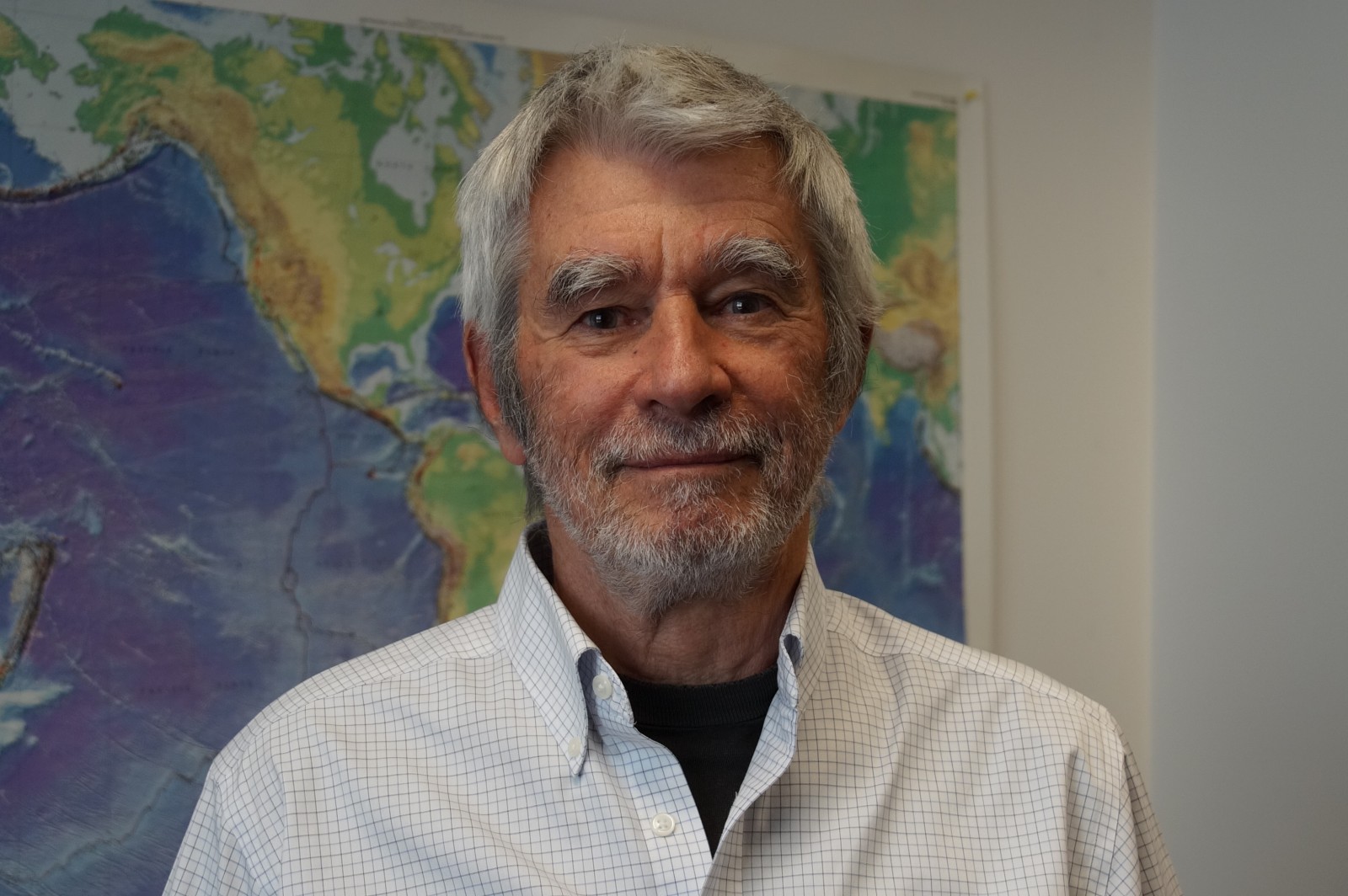
Peter Molnar – Credit: David Oonk
Interview conducted by David Fernández-Blanco

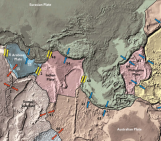
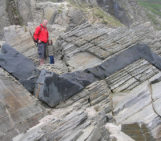
BIJAY SINGH
Wonderful motivational story to be followed by younger genre of Geology students and researchers. Thanks for such illuminating blogs.
David Fernández-Blanco
Thanks much Bijay! We’re very happy to read these positive comments on the blog series!:) David
Basem Al-Qadasi
Thank you very much David for this inspiring conversation. Luckily, I am currently studying the rate of seismic deformation as a master thesis, and I am using Mlonar’s 1979 formulation to estimate the seismic moment release rate. I have really enjoined reading Molnar’s papers just as I enjoined knowing his interesting story. I feel very excited about the challenges he mentioned and the questions threshed out in the blog about the field.
David Fernández-Blanco
Thank you, Basem! We’re glad you liked the interview and found it inspiring, and we wish you the very best in your research efforts! David